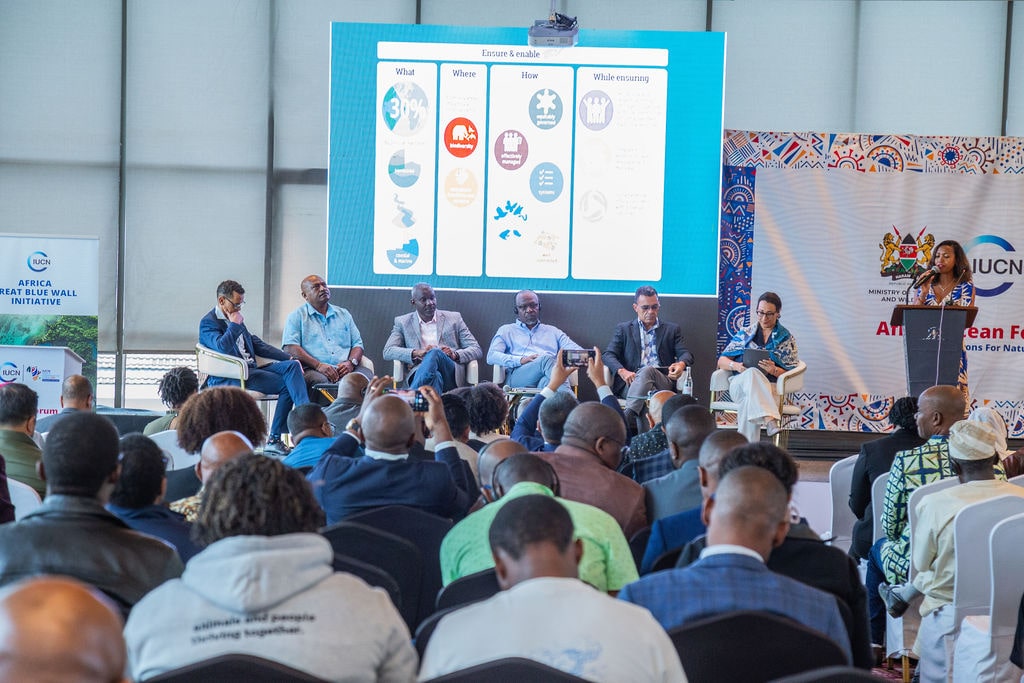The next conversation Africa should have is that of creating a Pan-Africa payment system.
While Small-and-Medium Size Enterprises (SMEs) account for approximately 80% of jobs in Africa, most of them cannot access emerging markets, especially across the continent.
“One of the greatest challenges across Africa has been logistics. Getting products to Europe has been easier than getting them to Ghana, right?” says Phyllis Mwangi, the Regional Coordinator for East and South at the International Trade Centre (ITC) SheTrades Hub during the launch of The Absa InspireMe Conference scheduled to take place from June 18th to 19th.
According to Ms Mwangi, the next conversation Africa should have is that of creating a Pan-Africa payment system. “Until we have a payment system that works for us, then it’s still a challenge to do business across Africa,” said Ms Mwangi.
According to her, the greatest game changer has been M-Pesa and a similar payment gateway should be rolled out across Africa for ease of doing business.
“The Pan-Africa payment system will enable bank-to-bank transfers in Africa. That I can buy from the Ghana trade house, or even in Ghana, and make that exchange,” said Ms Mwangi. She said there is currently a pilot to roll out this.
“There is a cohort that has already graduated in an initiative called the GTI (Guided Trade Initiative). The initiative selected cohorts of young women and men, and took them through the entire process end-to-end, to make sure the payment systems are working, that the logistics are working, and that their business entity itself is working,” said Ms Mwangi.
SMEs are crucial to contributing to Africa’s inclusive socio-economic development and growth. They generate work opportunities, income, and wealth creation, and thereby, enhance poverty reduction. When African businesses can freely trade and scale across borders, their impact on the populace is significant. Sub-Saharan Africa alone has 44 million micro, small, and medium enterprises, almost all of which are micro.
Speaking during the launch of The Absa InspireMe Conference, Elizabeth Wasunna, Absa Bank Kenya’s Business Banking Director says that apart from logistics, and payment gateway, African cross-border trade is hindered by a lack of target market information, trade barriers like forex and unfriendly taxation policies, lack of adequate data, as well as language and culture obstacles.
“We are very committed as a bank to ensure that we can open people’s eyes. Since we are in 12 African countries, we know the challenges. We advise businesses on what to expect. We also connect companies so that they may share their experiences in different markets. Because there’s nothing worse than an SME going to let’s say Congo but they know very little of the challenges on the ground,” said Ms Wasunna.
Ms Wasunna noted that the use of digital platforms has brought in some needed relief. “Also using data to support us, as opposed to historical conversations and experiences has been of help. So, the door is open for those conversations to see how we can manage,” she said.
Access to affordable capital is still a big issue for African SMEs. Several financial and banking institutions acting as lending institutions in Africa find it hard to lend capital finance to SMEs. This is because most of Africa’s SMEs can barely have the prerequisite information such as credit history that is necessary and essential for lending, limited financial statements and reports, and inadequate land and building ownership for collateral purposes. “Thus, there is a need to enable tools that can be utilised to collect and manage transactional data that can be used to easily create financial reports and statements,” says a report by the AU High-Level Panel on Emerging Technologies (APET).
To bridge the gaps that hinder, especially women-led businesses to trade across Africa the International Trade Centre and Absa will bring together 10,000 business women from across Africa in a Nairobi-gathering in which they will meet 11 global buyers and 20 large African corporations to access global markets.
“The truth is SMEs environment is always challenging. But the more knowledge you have, the better decisions you make. The conference will be an opportunity to share, and listen to others talk about what they’ve gone through to get over the challenges in the different markets. So, we are open to those conversations as well, in the room, but even outside the room, we will continue to have them,” says Ms Wasunna about the conference that is scheduled to take place physically in Nairobi and also virtually from June 18th to 19th.
The Absa InspireMe Conference is an initiative under Absa Bank’s women in business proposition, launched in 2021. The conference is organised annually to facilitate market linkages, business-to-business networking, and business mentorship for women entrepreneurs. The theme of this year’s conference which will be accessed both physically and virtually, is “Empowering Your Story for Growth,” which is in line with Absa’s new brand promise launched earlier this year—Your Story Matters—which shifts the bank’s purpose to a more deliberately customer-centric business.
“We are thrilled to once again be hosting the conference in Nairobi. Our mission is to create a platform that brings together prominent African women in business and entrepreneurs to share ideas, empower one another, and discuss emerging trends and skills necessary to transform their institutions and propel them to various levels of growth,” said Ms Wasunna.
This year’s conference brings together women entrepreneurs from Absa participating countries, which include Kenya, Ghana, Zambia, Mauritius, and Uganda, as well as participating countries under SheTrades Hubs in Africa, that is, Mauritius, Rwanda, South Africa, Ghana, The Gambia and Nigeria.
“We want to see trade deals happening one woman at a time. It’s going to be a real marketplace. We also have delegations of at least five women-led businesses coming from some of our 16 hubs across the globe. We have a real great conglomerate coming to look at what we have and partner, and access the $1.4 billion in markets that is open for business, and access UK markets, and eventually international markets,” said Ms Mwangi.
At the conference select women-led businesses from the agrifood, textiles and apparel, handicrafts, and accessories sectors will participate in a series of one-to-one business meetings with potential buyers from the UK delegation and African corporations. Representatives from participating SheTrades Hubs will also discuss potential collaboration with the three participating UK delegates from the Greater Birmingham Chamber of Commerce and Industry, Chamber International, and West and North Yorkshire Chamber of Commerce and Industry as well as export opportunities available through the UK Developing Countries Trading Scheme.



